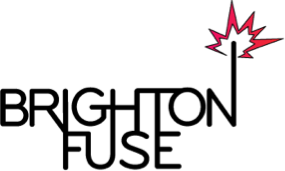Seminar 9: New Perspectives on Innovation in the Digital Age
25th Oct 2013
Exploring New Perspectives on Innovation in the Digital Age: Behind the Technological Picture
Co-organizers: Community University Partnership Programme, University of Brighton; Brighton Fuse; Wired Sussex.
Friday October 25 2013, University of Brighton
This seminar aims to bring together innovators, practitioners and researchers from across community, policy, academic and the digital and creative sectors to explore new understandings of innovation in the digital age. The accessible nature of digital technologies and networks has put new forms of social, political and community engagement and activism in the hands of growing numbers of people. This has been demonstrated, for example, at large-scales in processes such as the Arab Spring and also in new modes of co-operation such as crowdsourcing and crowdfunding.
Such developments indicate that we need to think about innovation as much more than technological processes: to look behind the technological picture to new approaches to collaboration and creativity for social and cultural as well as economic aims. If we are to benefit from the full potential of the digital economy we need to broaden our understanding of it and of how it relates to society and culture. The seminar will address debates and issues across local, national and global contexts.
Keynote Speaker: Mark Walker, Digital Innovator and Marketing Manager at AbilityNet
Key questions include:
- Where and how does innovation take place and what are the main factors shaping it?
- What is the potential for and challenges of non-profit forms of innovation?
- How has the accessibility of digital technologies impacted on innovation?
- How do communities and individuals in different parts of the world use digital technologies for social change?
- How do we build a more inclusive way of doing things to support innovation?
- What contribution can the arts, design and creativity make to all this?
- Are there risks in being too optimistic about the promise of new forms of innovation?
This will be a full day working seminar with limited places (30) to ensure those taking part are as engaged as possible in discussions. Participants will be asked to prepare a brief contribution (maximum two pages) to be shared among those attending the workshop and used as a basis for discussions and to add to the more formal presentations.
Contributions can cover the areas outlined above or others related to them and can include examples of projects undertaken and best practice. A summary of key points raised during the workshop will be shared with participants after the seminar.
Anyone interested in participating should contact the seminar organizer Gillian Youngs (g.youngs@brighton.ac.uk) as soon as possible by email with ‘ESRC seminar series’ in the subject line of the email, their full contact details and a short paragraph on their work and proposed contribution and why they would like to be involved. We welcome participation from people working in all areas of research and practice whether from academic, policy, community, business or cultural sectors. We are keen to hear from PhD students whose work on relevant areas is at an advanced stage.
These seminars are fully funded covering standard UK travel and accommodation where necessary and all catering so there are no charges for participants.
The ESRC research seminar series Digital Policy: Connectivity, Creativity and Rights (ES/I001816/2) is led by Gillian Youngs, University of Brighton, with Tracy Simmons, University of Leicester, William Dutton, Oxford Internet Institute and Katharine Sarikakis, University of Vienna. A volume from the series edited by Gillian Youngs, Digital World: Connectivity, Creativity and Rights, has recently been published by Routledge.




